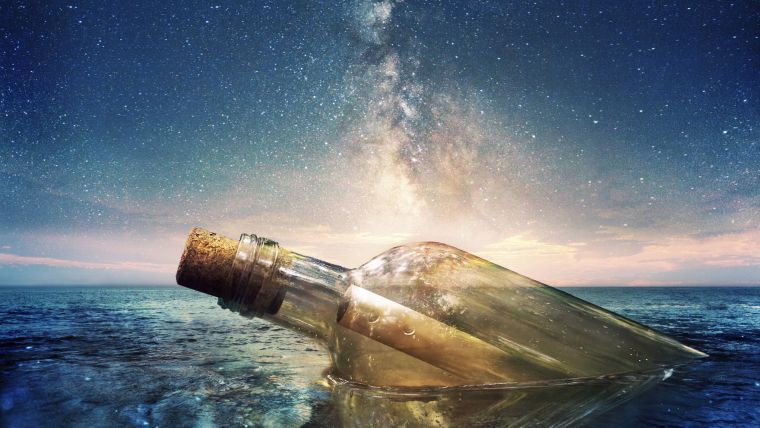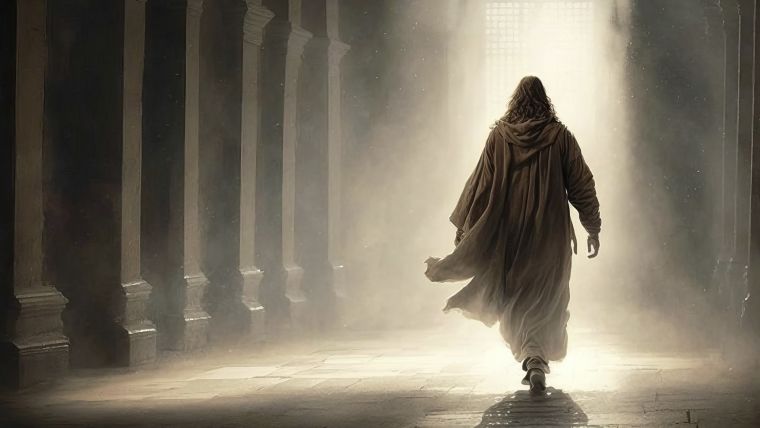Where were you on the evening of July 20, 1969? Did you stand outside and look up into the sky at the moon? A whole generation of humans — an estimated five hundred million people — watched on television as Neil Armstrong, Michael Collins, and Buzz Aldrin landed their lunar module, the Eagle, on the moon’s Sea of Tranquility. As this historic event unfolded, as the first humans stood on the surface of the moon, there was no doubt that something dramatic and historically important was happening.

The plan to send men to the moon and return them safely to earth was announced by U.S. President John F. Kennedy in May 1961. He repeated the goal in a speech in September 1962. That speech became known as his “We choose to go to the moon” speech, which inspired millions to think big. Sending people to the moon and back was a big idea, and involved big risks. There was no guarantee of a safe ending to the story. To everyone’s relief, the astronauts splashed down safely in the Pacific Ocean on July 24, and returned home in triumph. They were instant celebrities, having risked everything and succeeded in doing something that had never been done before. As one would expect of such highly trained, professional men, the astronauts were quick to give credit for their success to the combined efforts of thousands of scientists and technicians. Their successful flight to the moon could not have been done by one or a few individuals. It required years of work by many thousands of highly trained professionals.
The uniqueness of humans
The success of the Apollo 11 mission was a spectacular accomplishment by humans. “Think Big” multi-year projects such as the Apollo missions are not uncommon in human societies, but they are unique to humans. No other species does such things. No other creatures carry out projects involving years of coordinated work by many individuals.
Why not? Why couldn’t they?

Many other creatures have far greater populations, and some of them have amazing abilities that humans do not. Humans cannot fly like the birds, or swim like fish, or climb like monkeys. But humans can travel through the air or through the water and reach any point in the trees because of their special abilities.
Humans can do things that make them different than other animals. They can accomplish wonderful things that no other creatures could do. Humans think up new ideas, create plans, prepare ahead of time for problems, and carry their plans forward to completion. The ability to plan, think, and accomplish new things — things that have never been done before — is a uniquely human trait.
Speech is another uniquely human trait that was necessary for the success of the moon flight. Many animal species can communicate, some of them in surprising ways. But none of them have the ability to speak like humans. Clear communication by speech is necessary for complex plans to be coordinated and completed. Speech and language make it possible for ideas to be shared, discussed, and evaluated. If humans were unable to speak, the Apollo project would never have been attempted, let alone completed.

Another thing unique about humans is the combination of self-consciousness and free will. As humans, we are able to recognise ourselves as individuals and to make decisions regarding how we will behave. This combination makes us responsible for our decisions. It gives us a sense of morality.
This moral sense motivates many people to behave responsibly and reliably, allowing us to cooperate on a scale far beyond anything simple animals can do. Thousands of human technicians were able to trust each other and cooperate for the good of the Apollo project, even when it inconvenienced them personally. Animals cannot accomplish such goals, in part because they lack the combination of self-consciousness and free will needed for a sense of morality and responsibility.

Religion is another thing that is unique to humans. No other species could possibly have religious habits because they lack what is needed for morality — free will and self-consciousness. As strange as it may sound, you could argue that Christianity contributed to the success of the Apollo mission. How? Christianity provided the philosophical foundations — the thinking — necessary for the development of science. Science could not develop in a culture that thought nature was controlled by distant gods who were constantly fighting with each other and with humans, such as the Greek or Roman gods. No one could predict what would happen in nature any more than they could predict the mood of the gods.
Christianity taught that God was reliable and consistent in running the universe. So it made sense to try to discover the laws He used to run it. Christianity contributed to the success of science, including the Apollo mission, by providing a culture in which science could develop. Naturally, those who reject the idea of a God who is active in the universe disagree, but it’s a point worthy of much discussion.
[Numerous scholars have affirmed the importance of Christian belief in a rational, consistent God as a necessary precondition for the development of science. For example, see S. L. Jaki, Science and Creation (Edinburgh: Scottish Academic Press, 1974); Loren Eiseley, Darwin’s Century (Garden City, N.Y.: Anchor Doubleday, 1961), 62; Dan Graves, Scientists of Faith (Grand Rapids, Mich.: Kregel Resources, 1996).]
Why humans are unique
It is clear that humans are unique among all the species on the earth. But why should this be true? Humans seem similar to other mammals — they have similar organs inside, they have arms and legs, they reproduce in similar ways. There certainly are similarities in their genes. So why are humans and animals so different? Two very different answers are usually given to this question: evolution and creation.

Evolutionary theory suggests that humans are simply advanced apes that have developed superior brains. Our language and speech, our self-consciousness, and our mechanical abilities are seen as simply improvements in things other species do. Many evolutionists would argue that humans don’t really have free will and the morality that comes with it, even though it seems like we do.
There are a number of problems with this view. One of the most troubling problems is that evolutionary processes — which should exist only to ensure survival — do not explain why humans have abilities far beyond those needed just to survive. Why should humans appreciate art, music, and beauty? What evolutionary advantage is gained by the ability to paint a picture, or to compose a poem, or to enjoy the flowers? There are many similar objections that could be made. To many, they show that evolutionary theory is not a good explanation for the extraordinary abilities of humans.
What if humans were created by a Being with powers beyond our understanding? Could that explain why we have these kinds of abilities? Let’s take some time to explore the Christian story of creation and see.
The Bible book of Genesis describes the creation of humans this way:

1. They were created out of the dirt — this is, out of the same carbon-based building blocks as every other kind of life on earth.
2. They were created in two forms — male and female. With complementary parts and organs, they were created with the ability to reproduce, to create new humans in the form of babies.
3. They were created in the image of God — that is, in some way, their abilities were a reflection of God’s abilities.
There is no question that the first two parts of the Bible’s Creation story are accurate. Humans are carbon-based life forms, just as all life on earth is carbon-based. And humans can reproduce, recreating human babies in every new generation. But if the third part of the Creation story is accurate, what would that mean?
The image of God
If humans were unique in being created in ‘the image of God’, then it makes sense that we would have abilities that other animals do not. How do our unique abilities compare to what the Bible tells us about God?
What about relationships? If God created humans in both male and female form, then God’s image must be best seen in a relationship between the two. The Bible describes God as a being of relationships, Someone who wants to be in a relationship with humans. Like God, we are beings of relationships. We live in families, in communities, in nations, and everything we do is focused on how we are relating to others.
The human ability to have relationships with others may be a reflection of one part of the image of God.
As we discovered earlier, human creativity goes far beyond anything needed just to survive. This creativity allows humans to solve many complex problems, such as sending a man to the moon. Many other spectacular examples could be given of human creativity in problem-solving, but there is more to the story. We can find solutions to difficult problems, but with our creativity, we also explore things not needed for survival — things like beauty.

If God created our world, then He must also be a lover of beauty. Humans have created colourful paintings, dramatic sculptures, magnificent buildings and bridges, and many kinds of music. But these only faintly imitate the beauty in sunsets and flowers, in natural landscapes, and in the sounds of birds and other creatures. Can it be that humans love beauty because they were created in the image of a God who loves beauty?
If humans were created by God, then that may explain why we have abilities to think creatively, to plan ahead, and to appreciate beauty. It may explain why humans have self-consciousness and free will. It may explain why we can speak and understand language. It may explain why relationships are so important to us.
Human responsibilities
In the Creation story of Genesis, God gives humans a job. They are assigned to manage the resources of the earth. God creates the earth, and humans are to take care of it (read about it in Genesis 1:28).
First, humans are given the responsibility to ‘multiply’, to produce children and expand the population. This means establishing families and communities. The family is the basic building block of society. If God is a Being of relationships, then reflecting His image means building strong families.
Then, as they fill the earth with larger populations, humans are asked to manage the resources of the planet. If God’s image is reflected in them, they will treat the creatures of earth with kindness and safeguard the environment that all creatures share.

No one could claim that humans have managed the resources of the earth properly — not the way we have polluted the skies and water by the overuse of coal and oil. Not the way we’ve hunted some animals to extinction and allowed others to be wiped out by destroying their habitats. Too often, we’ve chosen profits and greed instead of responsible planning for the future.
But we could have — and we could still. We have the abilities to manage the earth, and those abilities — to reason from cause to effect, to creatively plan ahead and work in cooperation — are far beyond what we would need to simply survive. Caring for the creation requires the very abilities that are unique to humans — the kind you would see if humans were created ‘in the image of God’.

Conclusion
Humans are unique! And the Bible’s Creation story could explain why. It has an answer for why humans have abilities beyond the need for survival. And it tells what might be the purpose of these special abilities.
Do our special abilities reflect the ‘image of God’? Is our ability to form relationships and our creativity just a result of an accident? Did our love of beauty, our complex language skills, our abstract thinking, and our free will just happen without cause? It seems unimaginable that the very things that make us human are only a result of random chance.
Let’s continue this journey of discovery and try to focus in on the questions for which science has no answers: Why are we here? And where are we going?
The content of this post is taken from Beyond Imagination — There is more to life than we know, by John T. Baldwin, L. James Gibson and Jerry D. Thomas.





